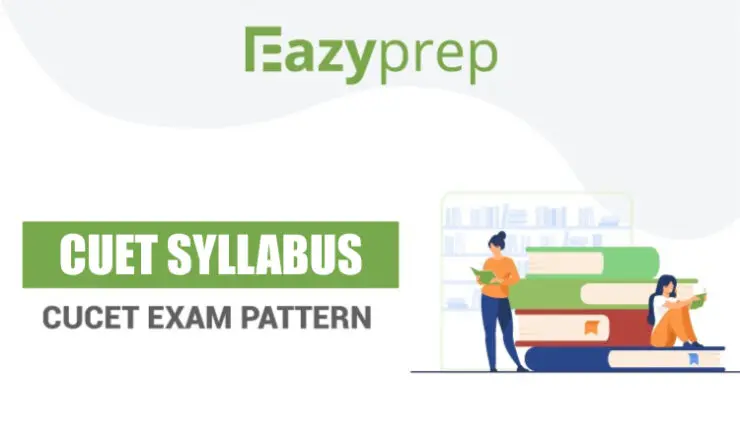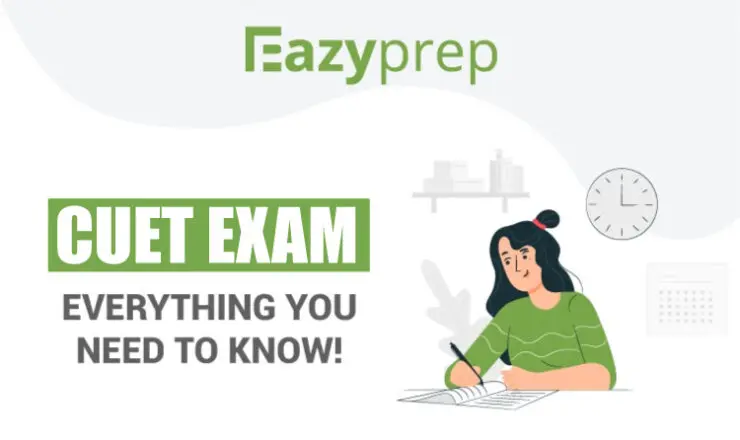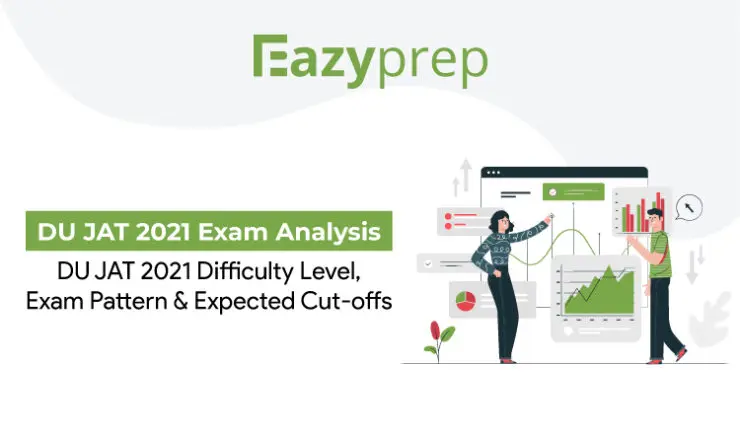![]()
JIPMAT or Joint Integrated Program in Management Admission Test is the way to go if you are aiming at entering a management program in one of India’s best-known universities. This national-level entrance exam is one of the top management entrance exams in India. It is conducted for admission into a 5-Year Integrated Program in Management at IIM Bodh Gaya and IIM Jammu. The test is conducted by the National Testing Agency (NTA).

JIPMAT Eligibility Criteria
For applying for JIPMAT, you must fulfil the following eligibility criteria:
- Candidates of General category must have passed class 12 and class 10 with at least 60% marks.
- Candidates of SC/ST category must have passed class 12 and class 10 with at least 55% marks.
JIPMAT Admission Process:
- Fill the application form: Fill out personal and academic details along with providing your photograph and signature. Pay the application fee via debit card/credit card/net banking.
- Download your Admit Card: Download JIPMAT admit card by signing into the admission portal. This admit card is very important as it needs to be carried to the exam hall, so don’t forget!
- Appear for JIPMAT exam: Appear for the 2.5 hour test where you will be asked questions from Quantitative Aptitude, Data Interpretation and Logical Reasoning, and Verbal Ability and Reading Comprehension.
- Check your result: You can check your result online, on the official website.
Filling JIPMAT Application Form:
You can go to the official website and fill the JIPMAT application form. The different steps involved are listed below:
1. JIPMAT Registration and Logging In:
Fill in details like your Full Name, Email ID, Phone Number, etc. After confirming your Email ID, you will be given a username and password using which you can log in to your account, where then you have to fill the JIPMAT application form.
2. Filling the JIPMAT Application Form:
Provide your personal details like category, family details, bank details, etc., and academic details. Double-check before submitting.
3. Uploading the JIPMAT Documents:
Upload all the necessary documents like photograph, signature, 10th and 12th-grade certificates, category documents, etc., according to the given format. Recheck all the details and submit the JIPMAT form.
4. JIPMAT Application Fee Payment:
Payment can be done using the methods of UPI, Net Banking, or Debit/ Credit Card. Once payment is successful, take a printout of the application form. The JIPMAT Application fee for both men and women in the general and OBC (Non creamy layer) categories is Rs. 2000, and for SC/ST/PwD candidates is Rs. 1000.
DU JAT Exam Pattern:
JIPMAT pattern can be understood as follows:
Mode: Online
Duration: 2.5 hours
Subjects: There will be 100 MCQs based on the following three subjects:
- Quantitative Aptitude
- Data Interpretation and Logical Reasoning
- Verbal Ability and Reading Comprehension
Total Questions: 100 questions
Marking Scheme: Each correct answer will get a score of +4 marks, each wrong answer will get a score of -1 mark.
JIPMAT Exam Centres:
Exam centers for JIPMAT include:
| State | City |
| Andhra Pradesh | Kurnool |
| Andhra Pradesh | Vijayawada |
| Andhra Pradesh | Visakhapatnam |
| Arunachal Pradesh | Itanagar |
| Assam | Guwahati |
| Bihar | Bhagalpur |
| Bihar | Gaya |
| Bihar | Patna |
| Chandigarh | Chandigarh/ Mohali |
| Chhattisgarh | Bilaspur |
| Chhattisgarh | Raipur |
| Goa | Panaji |
| Gujarat | Ahmedabad/Gandhinagar |
| Gujarat | Rajkot |
| Gujarat | Surat |
| Gujarat | Vadodara |
| Haryana | Ambala |
| Haryana | Faridabad |
| Haryana | Gurugram |
| Haryana | Hisar |
| Haryana | Panipat |
| Himachal Pradesh | Shimla |
| Jammu & Kashmir | Baramulla |
| Jammu & Kashmir | Jammu |
| Jammu & Kashmir | Srinagar |
| Jharkhand | Bokaro |
| Jharkhand | Jamshedpur |
| Jharkhand | Ranchi |
| Karnataka | Bengaluru |
| Karnataka | Hubli-Dharwad |
| Karnataka | Mangaluru |
| Kerala | Kochi |
| Kerala | Kozhikode |
| Kerala | Thiruvananthapuram |
| Madhya Pradesh | Bhopal |
| Madhya Pradesh | Indore |
| Madhya Pradesh | Jabalpur |
| Maharashtra | Aurangabad |
| Maharashtra | Mumbai/ Navi Mumbai |
| Maharashtra | Nagpur |
| Maharashtra | Nanded |
| Maharashtra | Pune |
| Maharashtra | Solapur |
| Manipur | Imphal |
| Meghalaya | Shillong |
| Mizoram | Aizawl |
| Nagaland | Kohima |
| Delhi | Delhi |
| Orissa | Berhampur |
| Orissa | Bhubaneswar |
| Orissa | Cuttack |
| Orissa | Rourkela |
| Punjab | Amritsar |
| Punjab | Jalandhar |
| Punjab | Ludhiana |
| Punjab | Patiala |
| Rajasthan | Ajmer |
| Rajasthan | Jaipur |
| Rajasthan | Jodhpur |
| Rajasthan | Kota |
| Rajasthan | Udaipur |
| Sikkim | Gangtok |
| Tamil Nadu | Chennai |
| Tamil Nadu | Coimbatore |
| Telangana | Hyderabad |
| Tripura | Agartala |
| Uttar Pradesh | Agra |
| Uttar Pradesh | Ghaziabad |
| Uttar Pradesh | Kanpur |
| Uttar Pradesh | Prayagraj |
| Uttar Pradesh | Varanasi |
| Uttar Pradesh | Noida |
| Uttarakhand | Dehradun |
| West Bengal | Kolkata |
| West Bengal | Siliguri |
Downloading JIPMAT Admit Card
JIPMAT Admit Card is released by the National Testing Agency (NTA). Candidates can log into the NTA website with the JIPMAT ID and Password in order to download the admit card. Usually, the downloading of Admit Cards are scheduled 15 days prior to the date of examination. An Admit Card will contain the center, roll number, date, and timing of the examination for a candidate along with the examination rules.
Following are a few points for the candidate to remember in terms of Admit Cards:
- The Admit Card can be downloaded till the exam date.
- It will be available only in the online applicant account.
- The candidate should check the NTA website regularly for any updates on the Admit Card.
- A good quality print-out of the Admit Card should be taken on A4 size paper.
- Check the details given in the Admit Card and in case of any discrepancies, contact helpline.
- The candidate should also carry a valid ID proof along with the Admit Card while entering the exam center.
JIPMAT Syllabus and Study Materials
For starting your JIPMAT preparation, the first step is to read and understand the entrance exam syllabus and focus on the important topics of each section.
1. Quantitative Aptitude
In this section, your mathematical ability is being analyzed. For this section, you should be thorough with your mathematics from 9th grade to 12th grade. And for higher mathematics, you should be versed with important formulae. This would help you do well in this part of the JIPMAT exam. Following are the important topics covered in the exam:
| Averages & Percentages | Pipes & Cisterns | Roots, Indices, Surds, |
| Simple & Compound Interest | Geometry- Lines, Angles, and Triangles | Permutations & Combinations |
| Mixtures & Alligations | Time, Speed & Distance | Profit & Loss |
| Probability | Determinants | Vectors |
| Integration | Differentiation | Circles and Mensuration |
| Mathematical Series | Quadrilaterals | Fractions and Decimals |
| Statistics | Work-Related Problems | Ratio and Proportion |
A list of books that might be helpful while preparing for this section of the JIPMAT is given below:
- NCERT Textbook Class 10, 11, 12
- Quantitative Aptitude for Competitive Examinations by R.S. Aggarwal
- The Pearson Guide To Quantitative Aptitude For Competitive Examination by Dinesh Khattar

2. Data Interpretation and Logical Reasoning
Reasoning and analytical ability are evaluated here. Practice regularly and learn strategies to solve questions related to the topics given below:
| Logical Series | Family Tree | Time Sequence |
| Directions | Groups & Conditionality | Missing Characters |
| Direction and distance | Verbal analogy | Diagram |
| Syllogisms | Analogies | Number Series |
A list of books that might be helpful while preparing for this section of the JIPMAT is given below:
- Verbal and Non-Verbal Reasoning by Dr. RS Aggarwal.
- Reasoning Book for Competitive Examinations by Pearson
- A new approach to Reasoning By B.S. Sijwali & S. Sijwali Arihant.

3. Verbal Ability and Reading Comprehension
Your command over the English language is tested here with questions ranging from reading comprehension and vocabulary to grammar. Reading the newspaper daily can bring a drastic change in your English proficiency to score well in this section. Following are the important topics covered in the JIPMAT exam:
| Antonyms-Synonyms | Reading Comprehension | Etymology & Roots |
| Fill Blanks | Idioms & Phrases | Foreign Words |
| Noun & Pronoun | Subject-Verb Agreement | Deductive Reasoning |
| Logical Consistency | Analogies | Grammar and Usage |
| One word Substitutions | Word Pairing | Finding Errors |
A list of books that might be helpful while preparing for this section of the JIPMAT is given below:
- General English by Arihant Publications
- Easy to Learn General English Complete Book by Yashpal Sharma
- High School English Grammar by Wren and Martin

Hope this article helped you in understanding the details about the JIPMAT exam. We wish you all the best!


